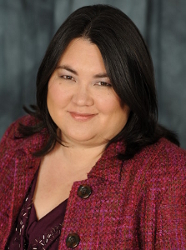2013 GH Finalist: India Powers
 Please join me in welcoming 2013 GH Finalist India Powers to our blog today! India writes paranormal historical romances set in England during the late Middle Ages and early Regency period. Her manuscript “Demon’s Bane” finaled in ROMANCE WRITERS OF AMERICA’S 2013 GOLDEN HEART® contest and won West Houston RWA’s 2013 EMILY contest. She enjoys living in the Midwest the seven months it isn’t winter, learning about the craft of writing, and watching sci-fi/fantasy shows and movies. Visit her at www.indiapowers.com
Please join me in welcoming 2013 GH Finalist India Powers to our blog today! India writes paranormal historical romances set in England during the late Middle Ages and early Regency period. Her manuscript “Demon’s Bane” finaled in ROMANCE WRITERS OF AMERICA’S 2013 GOLDEN HEART® contest and won West Houston RWA’s 2013 EMILY contest. She enjoys living in the Midwest the seven months it isn’t winter, learning about the craft of writing, and watching sci-fi/fantasy shows and movies. Visit her at www.indiapowers.com
First, I’d like to thank the Firebirds for inviting me to blog on their website. I feel honored to be in their company, because truly, it still doesn’t seem real that I, too, have finaled in the Golden Heart! Second, this is the first blog post I have ever written, so please bear with me as I calm my nerves. 
THE QUERYING GAME
Step One: Finish Your Manuscript
This is obvious, but true. You can’t begin the querying process without a finished, polished manuscript.
I tried to get around this for years. I took webinars offering query critiques and participated in pitch sessions with agents and editors, all in hopes of garnering positive feedback and hopefully some interest. The initial results were not good, but eventually I had a query that generated requests for partials and fulls. If you take this route, be honest. I only participated in events where the book did not have to be complete, and I clearly indicated my book was not finished in my pitch/query (“target word count: 100K”).
The downside? When I received requests to see more, I couldn’t follow up. Eventually, so much time passed that I didn’t think I could even mention the request without it looking like a strike against me. So finish the book.
Step Two: Revision H–Fun
Some people enjoy revising, the rest of us struggle. Regardless, revisions are necessary. Grit your teeth and do it. If you need fortification, wine or pots of coffee work well.
Step Three: Critique Partners Rock!
If you have critique partners, this is the time to send your manuscript to them, after you’ve done as much as you can. Once you receive their feedback, revise. (Caveat: carefully consider their suggestions, but only change the items you agree with. It’s your book.)
Step Four: Research
This step can be done at any time, but as I learned, research can be a form of procrastination to keep from finishing a book. So I made it step four. 
a) Know your book’s genre. I read debut and bestselling authors in all the genres I thought closest to my book to get a feel for the market and where my book might best fit. I write paranormal historical romance. However, if my book were a paranormal historical with romantic elements, can you see how this might affect the agents and publishers I target?
b) Research agents, editors and publishers to find the best match for your book. How? Read agent and editor blogs; visit agent and publisher websites; check out Writer’s Digest and the Guide to Literary Agents; sign up for a one-month subscription to Publishers Marketplace (great to see agents’ latest deals); check out Agent Query (http://www.agentquery.com/) and Query Tracker (http://www.querytracker.net/); and join writing groups. I love RWA’s online and local chapters! They’re a great way to get the scoop on agents and publishers.
Step Five: Query
I know I called this post “The Querying Game,” but you can’t reach this stage without completing the previous steps first.
a) Make sure you have a good query.
There are many resources available on query writing, both online and in print
If your query isn’t generating requests for a partial or full, don’t automatically assume the problem lies with your book. A friend in my local writing chapter had a query with a very low request rate. She rewrote it, focusing on the GMC of her characters, and received requests for material the majority of the time.
b) Read the submission guidelines for the agency or publisher you are targeting.
If you’ve done your research, you can greatly increase your odds of a request for more material by targeting agents and editors who represent the genre you write.
c) Query.
I like to send out queries in small batches. That way, if I received feedback pointing out an issue with my book, I would have time to correct it before submitting to the next group.
I use an Excel spreadsheet to keep track of my submissions and the responses. Each of the fields below represents a column on my spreadsheet:
Agent/Editor Name
Agency/Publisher
Query Date – some agencies ask for the first 10 pages and a synopsis, others ask for the first 3 chapters. I note what I send here. Ex: Queried 5/1/13 with 10 pages and synopsis.
Result – if an agent takes 8 weeks to review a query or if I receive a request for a partial or full, I note it here. When I receive a response, I copy it in verbatim. I can scan this column and see what I’m doing well (for example, worldbuilding), or what is a strike (paranormal market is in a downturn).
Material sent—if I receive a request for a partial or full, I enter the date I sent the material here.
Response date—the date I received a response to the requested material.
Comments — a note to myself on which version of my manuscript I sent.
d) Rejection.
Rejections are a part of the process. My coping mechanism is to send out another query. If I’m wallowing in disappointment, I’ll send out two (or three).
The goal of querying is to find the right fit for your book. My critique partner recently compared it to dating. On paper, it might seem you would be perfect for each other. Then you meet and there’s zero chemistry. I don’t know why, but thinking about querying in terms of dating makes me laugh and helps me put things back into perspective. 
Step Six: Keep Writing.
Finding the motivation to keep writing when you’re querying can be difficult. It’s easy to second-guess ourselves, and almost every writer I know—published or unpublished—is plagued by self-doubt at some point. However, many writers did not get offers of representation for their first book. They kept writing and submitting, and eventually met with success. The key is perseverance.
Write that next book!
The Querying Game
I call this the querying game, because that’s what this process sometimes reminds me of—a mix of luck, timing, and skill. Querying is just one small part of the pursuit of publication, despite the large emotional hit. The most important steps are writing and polishing our work, persevering and beginning the next project. Reminding myself that it’s the writing—not the querying—that is most important, helps me to keep going.
May you all win and achieve your dreams!



